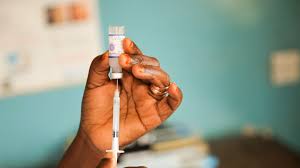
Outbreaks Drive Vaccination Decisions, But Experts Warn It’s Too Late by Then
As COVID-19 and influenza swept through the U.S. this season and measles outbreaks spread across 19 states, a crucial question emerges: What motivates people to get vaccinated? A new HealthDay/Harris Poll suggests that local outbreaks are among the strongest influences on Americans' vaccination decisions. The survey found that 67% of respondents said outbreaks and new variants of vaccine-preventable diseases impact their willingness to get vaccinated.
However, waiting for an outbreak to convince people to get vaccinated is far from ideal. Even in the face of rising illness and deaths, some remain reluctant. Dr. Peter Jay Hotez, co-director of the Texas Children's Hospital Center for Vaccine Development, emphasized that vaccine hesitancy has become a “lethal force” in the U.S. He highlighted the ongoing measles outbreak in Texas, where an unvaccinated child recently died—the first U.S. measles-related death since 2015. Hotez stressed that public health officials should not have to wait for an epidemic to serve as a wake-up call. Even as catch-up vaccination campaigns are rolled out in affected areas, many people still resist getting vaccinated.
The survey also underscored the critical role of healthcare providers in influencing vaccination decisions. Seventy-two percent of respondents reported that their doctor or healthcare provider significantly impacts their choice, while nearly 90% said they turn to medical professionals for vaccine-related information. Hotez noted that having trusted healthcare providers as a primary source of vaccine information is a promising sign, though he cautioned that it may not be enough to overcome entrenched hesitancy.
Media coverage of disease outbreaks appears to be another powerful motivator for vaccination. More than half of the survey participants said reports on rising measles and whooping cough cases have made them more supportive of vaccines. At the same time, social media seems to have a lesser influence than some might expect, with only a third of respondents saying online communities impact their decision-making.
The federal government’s role in vaccine advocacy, however, remains a point of contention. While 38% of those surveyed consider agencies like the CDC and NIH their main source of vaccine guidance, only 44% believe the federal government should be responsible for public health policy regarding infectious diseases. A notable 14% of respondents said no outside entity should be involved at all, believing vaccine decisions should be left solely to individuals.
Over the past five years, 44% of people reported changing their stance on vaccines. The shift was nearly equal in both directions, with 25% becoming more supportive of vaccination while 19% grew more skeptical. The most common reason cited for this shift was the COVID-19 pandemic and how vaccines were handled during the crisis. Hotez warned of a growing disinformation movement that actively discourages vaccination, pointing to findings in his book The Deadly Rise of Antiscience, which claims that 200,000 Americans—40,000 of them in Texas—died needlessly because they refused COVID-19 vaccines. He argued that this was not just the result of misinformation but a deliberate and organized disinformation campaign.